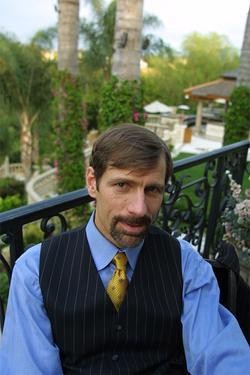
The California appellate justices in Orange County this afternoon rejected the proposal by a local billionaire that he, and those with immense wealth, deserve special rights to use the public court system in near top secret fashion.
The winner in the battle is the Los Angeles Times and investigative reporter E. Scott Reckard, who challenged Henry T. Nicholas' initially successful attempt to seal not just every document in his messy divorce case but also to erase its existence from all public records.
Incredibly, Nicholas had convinced Judge Salvador Sarmiento to grant him secrecy that no other citizen enjoys in civil court cases.
The Times discovered the ruse and filed legal briefs on behalf of the public.
Another judge, James L. Waltz, eventually assumed Sarmiento's divorce court duties and agreed with the newspaper's lawyers that the sealing order has been both contrary to ordinary procedures and bizarre.
]
Sarmiento had even allowed Nicholas to seal from public view simple attorney service notices as well as the case docket that merely lists documents in the matter.
The Orange County-based state appellate justices–Richard M. Aronson, William F. Rylaarsdam and Eileen C. Moore–were not amused by Nicholas' demands.
“We reject Nicholas' efforts to transform one of the initial judge's prior sealing orders into a judicial black hole from which no light can ever escape,” they wrote in an 18-page opinion. “A strong presumption exists in favor of public access to court records in ordinary civil trials. That is because 'the public has an interest, in all civil cases, in observing and assessing the performance of its public judicial system and that interest strongly supports a general right of access' . . . “
The justices added: “Open court records safeguard against unbridled judicial power, thereby fostering community respect for the rule of law.”
And while they slammed Judge Sarmiento's decisions as resulting in an “indecipherable and unmanageable record keeping process,” the justices praised Judge Waltz, saying he “acted properly . . . did not abuse his discretion.” They even called his work in the case “thorough and conscientious.”
But the justices weren't so kind to the Newport Coast billionaire who co-founded semiconductor giant Broadcom. They said his arguments for secrecy “appear more intended to mislead rather than inform” and they rejected his attempt to portray Waltz's unsealing order as threatening the safety of the Nicholas children.
The Times' lawyers at Davis Wright Tremaine suggested in briefs that Nicholas' real goal was to seal from public view illegal drug abuse allegations contained in the files–not to hide information about the location of his children.
To read my original story about the case, go
HERE.
–R. Scott Moxley / OC Weekly
CNN-featured investigative reporter R. Scott Moxley has won Journalist of the Year honors at the Los Angeles Press Club; been named Distinguished Journalist of the Year by the LA Society of Professional Journalists; obtained one of the last exclusive prison interviews with Charles Manson disciple Susan Atkins; won inclusion in Jeffrey Toobin’s The Best American Crime Reporting for his coverage of a white supremacist’s senseless murder of a beloved Vietnamese refugee; launched multi-year probes that resulted in the FBI arrests and convictions of the top three ranking members of the Orange County Sheriff’s Department; and gained praise from New York Times Magazine writers for his “herculean job” exposing entrenched Southern California law enforcement corruption.



